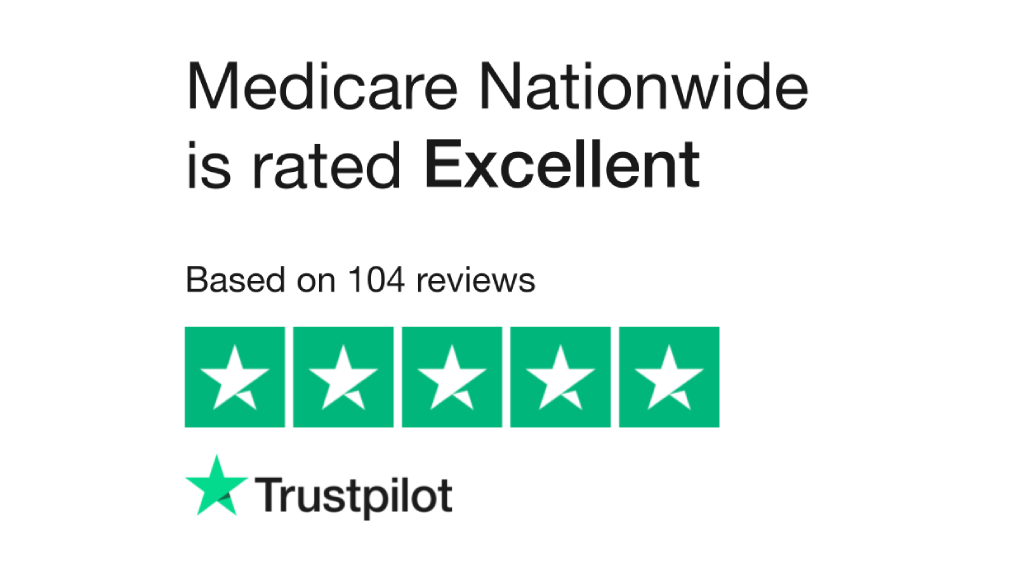Basics of Medicare Supplement Policies
Before jumping into how to change your Medicare Supplement policies, let’s go through the basics.
Medicare Supplements cover the costs not covered by Original Medicare Part A & Part B. For a refresher, remember Part A covers hospitalization and Part B is essentially health coverage for doctors and specialist visits. Each part has standard deductibles and copays you can get stuck paying if you don’t have a way to cover those costs.
Medicare Supplements are not Medicare. They pick up the out-of-pocket expenses that Medicare does not cover. Supplements otherwise known as Medigap policies are sold by private insurance but regulated by the federal government.
Regardless of the company you choose, the coverage will be the same. Rates and availability will vary by company. Many companies will also add extra benefits to the products to distinguish themselves from competitors.
This appointment is meant to alleviate any concerns and there is no-cost or obligation to make a change.
There are 10 Medicare Supplement plans on the market in every state but following are the basic plans most customers choose:
Plan A
Plan A is the most basic plan you can purchase. All other plans build off of the coverage offered by Plan A.
Plan A covers Part A Medicare co-insurance, including an extra 365 days of hospital costs. Part B 20% co-insurance is covered, along with three pints of blood and Part A hospice care.
Plan B
Plan B is identical to A except it covers the Part A deductible.
Plan C
Plan C adds coverage for the Part A coinsurance for using a skilled nursing facility, and also covers the Part B deductible. With Plan C, you also have coverage for the medical expense of foreign travel emergency medicine. If you travel out of the country, and many seniors do, this is critical coverage.
Plan D
Plan D modifies Plan C. It includes everything Plan C does except it removes the Part B deductible.
Plan F
Plan F and Plan G are the most comprehensive Medicare Supplements you can buy. Along with the coverages included in Plan C, you also have coverage for Part B excess charges.
Excess charges can be substantial. Under traditional Medicare, doctors are allowed to charge an extra 15% to the patient beyond the portion that Medicare reimburses. Plan F will pick up that extra 15% charge.
Some plans also restrict doctor choice, Plan F allows you to choose any doctor you want. You also don’t need a referral to see a specialist.
One thing to remember about Plan F is that availability is restricted. If you are new to Medicare in 2020, you can not purchase this plan. However, if you have been enrolled in Medicare prior to that date it is available to you.
Plan G
Plan G offers the same coverages as Plan F, EXCEPT it does not cover the Part B deductible. The reason people choose this plan is that they can often save in premium cost over Plan F. This more than covers the deductible cost.
A High Deductible Plan G was introduced in 2020. Currently, you need to hit a $2,870 deductible before coverage begins with Plan G. The benefit is that premiums are much lower compared to the original Plan G. If you are a healthy senior with few medical expenses, this may be a plan to consider. You may actually save enough in premiums that cover a portion of the deductible.
The only main benefit missing from this list is the Part B deductible.
Plan N
Plan N is similar to Plan G except it does not cover Part B excess charges. You may also be required to pay some copayments. The copayments are up to $20 for office visits and $50 for emergency room visits, but they are not always applicable.
Our homepage gives a visual side-by-side guide to the various Medicare Supplement plans. Seeing the plans side by side can help you grasp the various coverages offered under each plan.
There are other Plans available, but these are the most common.
Enrollment Periods for Medicare Supplements
Just like Medicare has special enrollment periods throughout the year, Medicare Supplements have a special window where you need to purchase a plan. There is really only one Enrollment period for Medicare Supplements. It is referred to as the Initial Enrollment Period. This window is from 3 months prior to your 65th birthday and 3 months after.
During this period you can enroll in a Medicare Supplement without being subject to medical underwriting and policies are guaranteed issues.
Changing Your Medicare Supplement
Why would you want to change your Medicare Supplement plan? In talking with customers, we find a handful of basic reasons customers might consider switching.
- You’re paying for benefits you don’t need.
- You need more benefits.
- You are not happy with your insurance company. This could be due to customer service or claims handling
- You are not happy with the premiums you are paying.
Switching Medicare Supplement plans is easy. However, make sure you are not losing benefits or coverages when switching companies or to a different plane.
You don’t have to wait for a special enrollment period to make the switch. In most states, you will have to answer medical questions and could be turned down based on pre-existing conditions. There’s a wide range of questions and responses between insurance carriers. Some make the process simple with few questions. Others have more detailed questionnaires.
If you are considering switching, an experienced agent with access to multiple carriers can direct you to the simplest and most competitive options.
Rules around switching plans can vary based on the state you live in. These states allow you to switch without medical questions:
California and Oregon have the Medicare Supplement birthday rule. For these states, you can change each year during your birth month with no medical questions.
Connecticut and New York allow for guaranteed issuance when switching policies at any time.
Missouri has the Medicare Supplement Anniversary rule. You can switch on the anniversary date of when you first signed up.
Maine will allow you to switch to plans with the same or fewer benefits at any time of the year.
Washington will allow you to switch to any plan except Plan A at any time of the year.
Moving Out Of State
Because insurance is regulated by the states, it can be confusing how policies are transported across state lines. You can keep your plan when moving between states. All you do is update your address with your current carrier. Your premiums may change based on your new location
There are certain states where this is an exception. If you move to or from Massachusetts, Wisconsin, or Minnesota, you will have to switch plans. These states have different standardized plans than the 10 standard plans offered in most states.
Free-Look Period
When you purchase a Medicare Supplement policy, most companies will give you a 30-day free look period. The time starts when your policy goes into effect and runs for 30 days. During that time you can switch without penalty. However, you do have to pay premiums for both your new and old plan for 1 month if you decide to use this option.
Pre-Existing Conditions
Pre-existing conditions are common among most people over 65. In fact, according to the Department of Health and Human Services, up to 50% of Americans have some type of pre-existing health condition. These conditions could be cancer, heart disease, diabetes, asthma, kidney disease, etc.
There is a special window where having pre-existing conditions will not hurt you. During the Initial Enrollment Period, you are safe from company underwriting if you have pre-existing conditions. Insurance companies are obligated to offer and issue you a Medicare Supplement policy during that period.
The Initial Enrollment Period is 3 months prior to turning 65 and 3 months after. Don’t miss this window if you have pre-existing conditions.
Pre-Existing Waiting Period
There is a potential waiting period. If you are issued a policy with pre-existing conditions, some insurance carriers may not cover co-payments or other out-of-pocket costs during this time. In some cases, this can last 6 months. Make sure you talk with your agent to understand what the waiting period of the carriers may be before you make a decision about coverage.
What if You Missed the Enrollment Period?
If you missed the Initial Enrollment period, you may still have a guaranteed issue option. You will qualify if you lose coverage or have healthcare changes out of your control. The circumstances are very specific and apply to only a few circumstances. This is why we recommended signing up for Medicare Supplement during the Initial Enrollment window.
If you don’t meet any of the special guidelines, insurance companies will use any pre-existing conditions as they underwrite your application. Each company is different, but any medical history can be used to determine rates, coverages, and acceptability outside of the window.
Can You Change Plans with Pre-Existing Conditions?
Yes. If you initially purchased a Medicare Supplement during the enrollment period, you can switch even if you have a pre-existing condition. There is rarely a coverage waiting period as well. Make sure to keep your current plan until the new plan goes into effect.
Switching to Medicare Advantage Plans
Yes, you can switch to a Medicare Advantage plan. If you aren’t happy with your Medicare Supplement premiums or coverages, one option is to look at an Advantage Plan.
- Important: you can not have a Medicare Advantage Plan and Medicare Supplement plan in effect at the same time!
If you are considering switching to an Advantage Plan, you only have one opportunity each year. During the Annual Enrollment Plan, which is from Oct. 15 and Dec. 7, you can make the switch.
Make sure you will receive similar coverages and protections against out-of-pocket expenses before making the switch. Maybe you have a Medicare Advantage plan, but want to switch to a Medicare Supplement plan. Can you do that?
You must make the switch to Medicare Supplement during the Annual Enrollment Period of Oct. 15 through Dec. 7. You basically switch from Medicare Advantage to Original Medicare which makes you eligible for a Medicare Supplement policy.
This appointment is meant to alleviate any concerns and there is no-cost or obligation to make a change.
Bottom Line
The most important thing to remember about changing Supplements is that you can. Maybe you are frustrated with your current carrier. Maybe you are not happy with the rates you are paying. You may not feel you have adequate coverage, and your health budget keeps getting damaged each year.
Maybe you are happy where you are, but it has been several years since you have reviewed your policy. Because of changes each year to Medicare and Medicare supplements, we recommend reviewing your policies every couple of years. You could be paying more for less coverage than you realize. It can be incredibly time-consuming to review coverage and shop your pricing through hundreds of carriers in the marketplace. Don’t do it yourself.
MedicareNationwide is an insurance broker dedicated to helping seniors find the best products for their needs. We represent all the major carriers in the United States. Regardless of where you live, we can shop your policy to find out if you are getting the best deal.
Contact one of our agents today, and let them do a full free review of your policy and present you with options to better your Medicare coverage.
Prefer to chat by phone? Give us a call at 1-888-559-0103.

